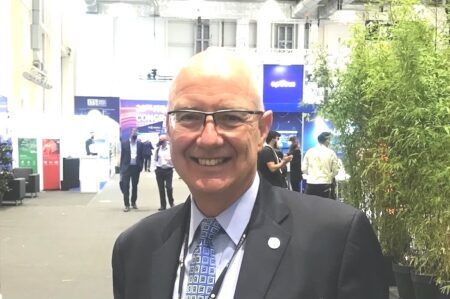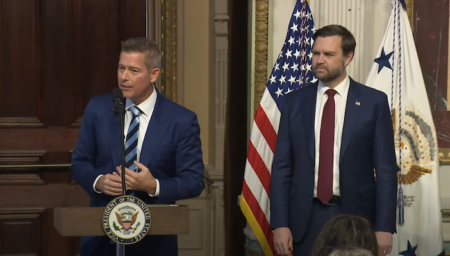The US acting federal highway administrator Stephanie Pollack has announced that the Biden-Harris Administration has awarded a US$11.3 million grant from the Bipartisan Infrastructure Law to the City of Pittsburgh, Pennsylvania, to revitalize the Hill District neighborhood.
The project will improve pedestrian infrastructure and make other enhancements to safely connect low-income residents to transit hubs and employment opportunities. New electric vehicle charging options and stormwater infrastructure upgrades will contribute to environmental sustainability.
This announcement is part of the Biden-Harris Administration’s Building a Better America Tour that secretary Pete Buttigieg kicked off in Tampa, Florida on August 23, 2021. The tour sees DOT leaders fan out to show how the President’s Bipartisan Infrastructure Law is delivering safe, efficient, and affordable transportation for communities across the US.
“The City of Pittsburgh’s New Pathways to Equity project is a great example of federal investment from the Biden-Harris Administration’s Bipartisan Infrastructure Law supporting the best locally developed and community focused ideas,” said Pollack. “The project is prioritizing the right construction improvements in a community that has historically suffered disconnection from the business district of Pittsburgh because of disinvestment and inadequate transportation choices.”
This grant is part of the Department of Transportation’s RAISE program that helps urban and rural communities modernize roads, bridges, transit, rail, ports, and intermodal transportation and make transportation safer, more accessible, more affordable, and more sustainable. This year, secretary Buttigieg awarded over US$2.2 billion in RAISE grants to 166 projects in all 50 states thanks to the President’s Bipartisan Infrastructure Law.
“We are proud to support so many outstanding infrastructure projects in communities large and small, modernizing America’s transportation systems to make them safer, more affordable, more accessible, and more sustainable,” said Buttigieg. “Using funds from President Biden’s Bipartisan Infrastructure Law, this year we are supporting more projects than ever before.”
Secretary Buttigieg awarded $36.3 million for two grants in Pennsylvania. First, as part of New Pathways to Equity, the City of Pittsburgh will receive $11.3 million to fund construction activities associated with improvements to the public right-of-way in the Hill District in Pittsburgh.
Improvements will include the reconstruction of intersections, street corridors, and city steps and will include the installation of traffic calming measures, sidewalks, and green infrastructure. The project will revitalize the Hill District, a community that has suffered deterioration and disconnection from the business district of Pittsburgh through historical disinvestment.
By making ADA-compliant pedestrian infrastructure improvements, the project will safely connect low-income residents to transit hubs and employment opportunities. New electric vehicle charging options and low-impact development stormwater infrastructure contribute to environmental sustainability
Second, the City of Philadelphia will also receive US$25 million to make improvements along seven high-crash corridors totaling approximately five miles. Proposed improvements include traffic safety treatments, signal modernization, ADA accessibility improvements, and various roadway upgrades.
The proposed improvements will significantly reduce collisions within the corridor and enhance bicycle and pedestrian safety. The project will result in reduced vehicle miles traveled and improve sustainable transportation options. The project’s use of innovative technologies, like fiber optic connections and wireless communications, will further improve safety and accessibility for users. The project will also use workforce development programs to create high-quality, good-paying jobs for traditionally underrepresented Philadelphians, including women and people of color.
The funding news follows an announcement in early August that the City of Pittsburgh, Carnegie Mellon University (CMU) and micromobility service provider Spin have launched a first-of-its-kind study that will give up to 50 low-income residents in Pittsburgh, Pennsylvania free access to shared mobility and public transit services to look at its effects on participants’ socioeconomic progress.
The year-long research project will study the potential of free transportation to improve people’s economic, health, and social outcomes when financial barriers to transportation are removed, with a goal of improving access to jobs, education, healthcare, social services, and recreational activities.





